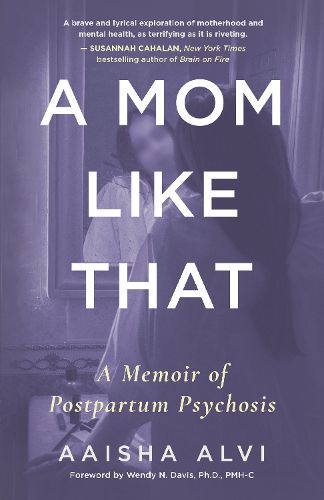Readings Newsletter
Become a Readings Member to make your shopping experience even easier.
Sign in or sign up for free!
You’re not far away from qualifying for FREE standard shipping within Australia
You’ve qualified for FREE standard shipping within Australia
The cart is loading…






"A brave and lyrical exploration of motherhood and mental health ... as terrifying as it is riveting." - Susannah Cahalan, NYT bestselling author of Brain on Fire
A powerful exploration of postpartum psychosis and motherhood - and a call to end the stigma and blame.
Early motherhood is supposed to be joyous, but for Aaisha Alvi, those early days were ruined by terrifying, delusional thoughts about her baby and family. Far beyond the trials of breastfeeding and getting her baby to sleep, Aaisha's experience was the antithesis of everything she had ever been told about motherhood.
When her second pregnancy ended in miscarriage, Aaisha's psychosis returned. This time, however, she was blindsided by the unimaginable: voices urging her to stab her daughter and to harm innocent people. Aaisha felt evil, worthy of taking her own life. But each time she sought medical help, she was turned away.
With unflinching honesty, Aaisha takes readers beyond the vitriol and blame flung at women - particularly women of colour - suffering from postpartum psychosis. Her story is a clarion call to increase awareness of a condition that need never result in tragedy and to build support for those affected by it.
$9.00 standard shipping within Australia
FREE standard shipping within Australia for orders over $100.00
Express & International shipping calculated at checkout
"A brave and lyrical exploration of motherhood and mental health ... as terrifying as it is riveting." - Susannah Cahalan, NYT bestselling author of Brain on Fire
A powerful exploration of postpartum psychosis and motherhood - and a call to end the stigma and blame.
Early motherhood is supposed to be joyous, but for Aaisha Alvi, those early days were ruined by terrifying, delusional thoughts about her baby and family. Far beyond the trials of breastfeeding and getting her baby to sleep, Aaisha's experience was the antithesis of everything she had ever been told about motherhood.
When her second pregnancy ended in miscarriage, Aaisha's psychosis returned. This time, however, she was blindsided by the unimaginable: voices urging her to stab her daughter and to harm innocent people. Aaisha felt evil, worthy of taking her own life. But each time she sought medical help, she was turned away.
With unflinching honesty, Aaisha takes readers beyond the vitriol and blame flung at women - particularly women of colour - suffering from postpartum psychosis. Her story is a clarion call to increase awareness of a condition that need never result in tragedy and to build support for those affected by it.